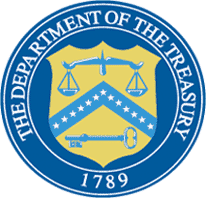WASHINGTON – Today, U.S. Secretary of the Treasury Janet L. Yellen, Chair of the Board of Governors of the Federal Reserve System Jerome H. Powell, Chair of the Securities and Exchange Commission Gary Gensler, President and Chief Executive Officer of the Federal Reserve Bank of New York John C. Williams, and Acting Chairman of the Commodity Futures Trading Commission Rostin Behnam released a letter to nonfinancial corporate stakeholders following a discussion of the experiences and concerns of nonfinancial corporations as they prepare to transition from U.S. dollar (USD) LIBOR.
The full text of the letter is below and can be found here.
|
Mr. Thomas Hunt |
Mr. Thomas C. Deas, Jr
|
Mr. Tom Quaadman |
Dear all:
Thank you for your letter of April 27, 2021 and for the opportunity to meet with some of your members to discuss the experiences and concerns of nonfinancial corporations as they prepare to transition from U.S. dollar (USD) LIBOR.
As your letter notes and your members shared in our meeting, the LIBOR transition presents considerable operational, technological, accounting, tax, and legal challenges for Main Street companies. We appreciated hearing your members express their need for sufficient clarity on the alternative rates that will be available to meet their financial needs and for sufficient time to understand how best to use those rates. We also took note of the challenges your members have faced in obtaining loan agreements based on the Secured Overnight Financing Rate (SOFR), even after they indicated that loan agreements based on SOFR would be their preferred choice.
The official sector has consistently supported a transition from LIBOR that leads to a more stable financial system, while also meeting the needs of all the parties who will be impacted by it, including nonfinancial corporate and noncorporate business borrowers, consumers, and investors, as well as financial institutions. We have stressed the importance of reference rates built on deep, liquid markets that are not susceptible to manipulation. Although the official sector is not positioned to adjudicate the selection of reference rates between banks and their commercial customers, borrower preferences and needs clearly have a significant role to play in the selection of such rates.
We agree that a smooth transition will be best supported if financial institutions offer alternatives to USD LIBOR that meet borrower needs and if this is done in a timely fashion. The transition is at a critical juncture, and we were thus concerned to hear your members report that nonfinancial corporations are, in most cases, not yet being offered such alternatives despite the short amount of time left in the transition. Accordingly, we invite you to continue to share your experiences and views with us as the transition, and the dialogue with your lenders, continues.
We appreciated the important leadership you and your members have provided in working with the ARRC and in advancing the LIBOR transition. It is vital that all stakeholders in the LIBOR transition work together to foster a durable transition, set upon a solid foundation that promotes the stability of the U.S. financial system on a sustained basis.
Sincerely,
|
Janet L. Yellen Secretary U.S. Department of the Treasury |
Jerome H. Powell |
|
Gary Gensler |
John C. Williams |
|
Rostin Behnam |

